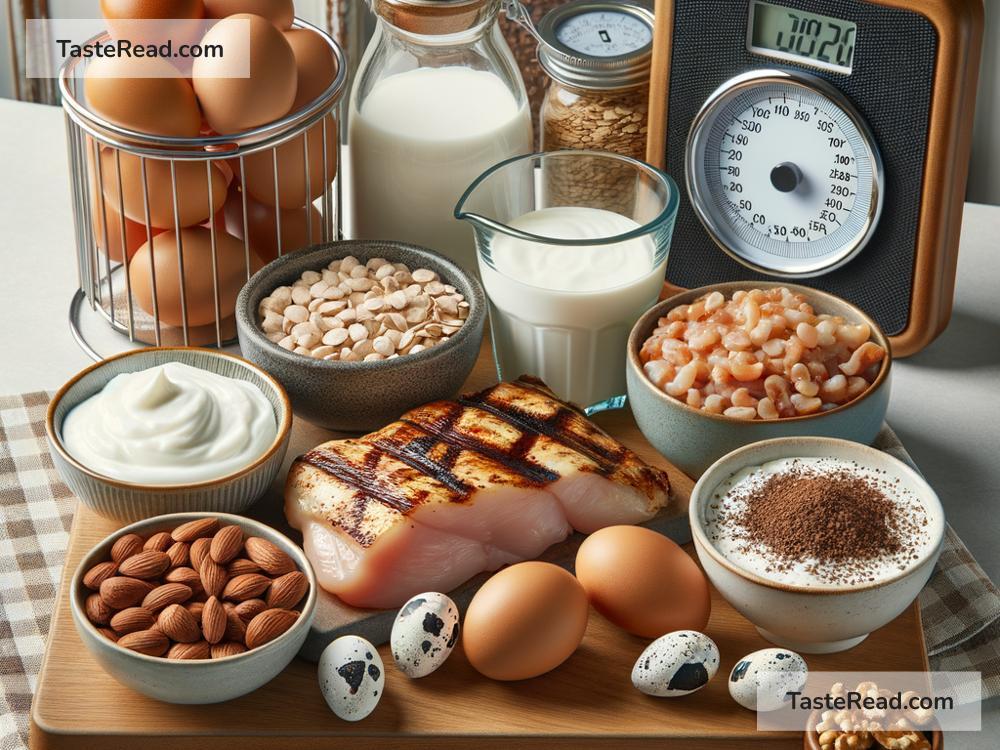The Benefits of a High-Protein Diet: What the Science Says
Protein is one of the most important nutrients your body needs to stay healthy. It plays a big role in building muscles, repairing tissues, making hormones and enzymes, and even supporting the immune system. Many people today are choosing high-protein diets to lose weight, build strength, or simply feel better. But what does science say about the benefits of eating more protein? In this article, we’ll break it down in simple terms.
What Is Protein and Why Do We Need It?
Protein is made up of smaller building blocks called amino acids. Your body uses amino acids to grow and repair cells, and to carry out countless everyday functions. Unlike carbs or fat, protein isn’t stored in your body, so you need to eat it regularly to meet your daily needs.
Foods like meat, fish, eggs, dairy products, beans, nuts, tofu, and lentils are great sources of protein. Whether you eat animal-based or plant-based proteins, the benefits are similar.
The Benefits of Eating More Protein
Here are some of the key reasons why increasing your protein intake might be good for you:
1. Helps You Feel Full and Lose Weight
Ever eat a meal and feel hungry again an hour later? That might be because your meal didn’t have enough protein. Protein is known to help you feel full for longer. Scientists say that protein reduces levels of a hunger hormone called ghrelin, while boosting levels of hormones that make you feel satisfied.
Because of this “fullness factor,” high-protein diets can help you lose weight. When you’re not constantly hungry, you’re less likely to snack on unhealthy foods or overeat. Research shows that people on high-protein diets tend to eat fewer calories overall without feeling deprived.
2. Builds and Maintains Muscle
Protein is essential for muscle growth and repair. When you exercise—especially weightlifting or strength training—your muscles create tiny tears that need to be repaired. Protein helps rebuild those muscles, making them bigger and stronger over time.
This is especially important for athletes, bodybuilders, and anyone trying to get fitter. However, it’s not just about building new muscle. Eating enough protein also helps maintain muscle as you age. As people grow older, they naturally lose muscle mass, which can lead to weakness and frailty. A higher protein intake can slow down this muscle loss and keep you active longer.
3. Boosts Metabolism and Burns Calories
Your body burns calories while digesting food, but not all foods require the same amount of energy to break down. Protein has a much higher “thermic effect” than carbs or fat, meaning your body uses more calories to process it.
For example, if you eat a meal high in protein, you’ll burn more calories just by digesting it compared to a carb-heavy meal. This metabolic boost may be small, but over time, it can make a big difference in helping you manage your weight or burn more fat.
4. Supports Healthy Bones
Some people think eating a lot of protein is bad for your bones, but studies suggest the opposite is true. Protein helps improve bone strength and density, especially as you age. A diet rich in protein can reduce your risk of fractures and osteoporosis (weak or brittle bones).
Protein works together with calcium to keep your bones strong. So if you want healthy bones, don’t just focus on dairy products—make sure you’re getting enough protein too!
5. Improves Recovery After Exercise or Injury
Whether you’ve had a tough workout or a minor injury, your body needs extra nutrients to heal. Protein plays a big role in repairing damaged tissues and speeding up recovery. Athletes often eat high-protein meals after workouts to reduce soreness and rebuild their muscles more quickly.
If you’re recovering from surgery or an injury, eating more protein can also help your body heal faster. It gives your tissues the tools they need to repair themselves effectively.
6. Supports a Healthy Immune System
Protein isn’t just for muscles—it also helps your immune system stay strong. Your body uses amino acids from protein to create antibodies, which fight off infections and illnesses. Without enough protein, your immune system may become weaker, making it harder to stay healthy.
How Much Protein Do You Need?
The amount of protein you need depends on your age, activity level, and overall health. Most people are advised to eat about 0.8 grams of protein per kilogram of body weight per day. For example, if you weigh 70 kilograms (154 pounds), you need about 56 grams of protein daily.
If you’re very active, pregnant, or trying to build muscle, you might need more—around 1.2 to 2 grams per kilogram of body weight. Consult with a doctor or nutritionist to figure out the best amount for you.
Is a High-Protein Diet Safe?
For most people, eating more protein is perfectly safe. However, it’s important to balance your diet and not rely only on protein-rich foods. Eating too much protein and ignoring other nutrients (like fiber, carbs, or healthy fats) can lead to digestive issues or other health problems.
If you have kidney problems, a very high-protein diet may strain your kidneys, so it’s best to talk to a doctor before making any big changes to your diet.
Final Thoughts
A high-protein diet offers many health benefits, from helping you lose weight to building strong muscles and bones. Science supports these benefits, making protein a smart choice for most people. Just remember to get your protein from healthy sources and keep the rest of your diet balanced.
Whether you’re looking to slim down, get stronger, or simply improve your health, adding more protein to your plate is a simple and effective strategy. Give it a try—and see how your body feels!


